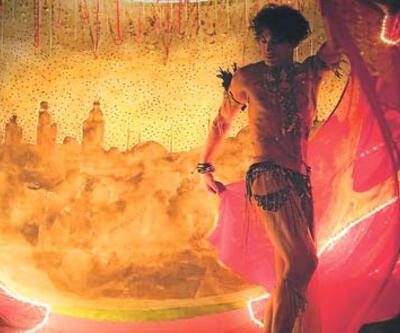
Today, male dancers working as belly dancers are called Zenne. Zenne is the name given to men in traditional nomadic Turkish traditions who traditionally dance in a feminine way in women’s clothing at festivities or weddings for fun. They perform in traditional costumes, including flowing skirts and veils, and use the same movements and techniques as female belly dancers.
Traditionally, Zenne dancers are men who performs for women at private events such as henna nights which are organized for the bride and her friends before the wedding.
Zenne means woman in Ottoman Turkish and is a word of Persian origin. Since it was considered a sin for Muslim Turkish women to appear on the stage in the pre-republican era, male actors played female roles in all theater performances. Today, male belly dancers are also called zenne too.
Zenne dancers of Turkey symbolize an influential cultural tradition that is slowly being rediscovered and brought back to life by a new generation of male dancers. Zenne dancing is a powerful way of expression, challenging traditional gender roles and society’s expectations. Zenne dancers have found a way to embrace their identities and express themselves through their interesting dance. Despite the challenges that they face, Zenne dancers continue to push boundaries and break down barriers through their art of dancing.